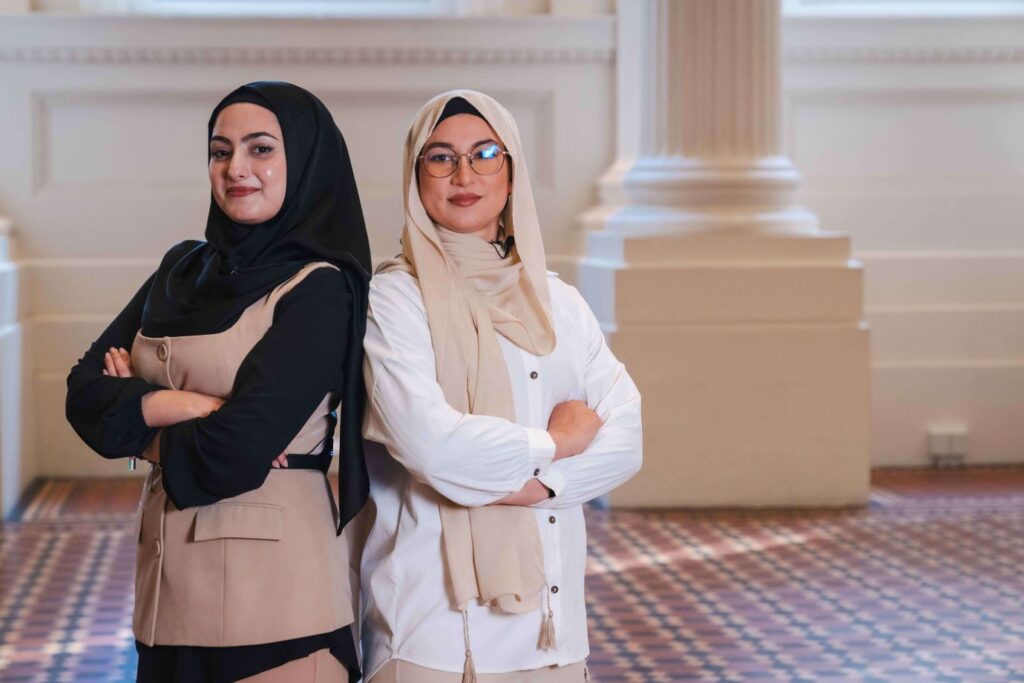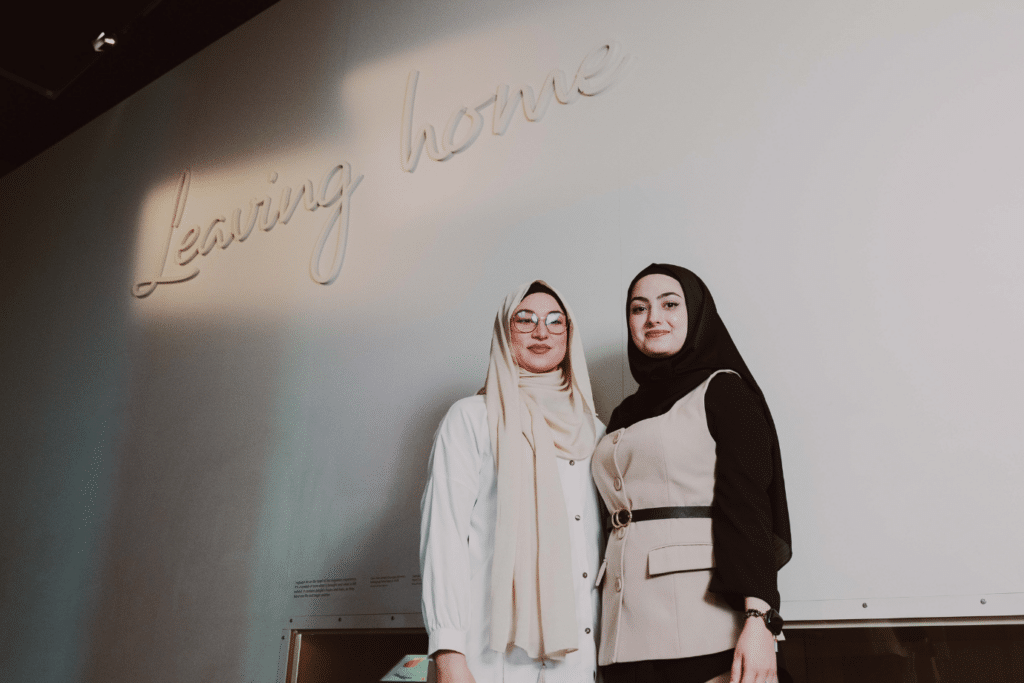In a world fraught with adversity, the journeys of Mursal Sadat and Parisa Sekandari stand as testament to resilience, courage, and unwavering determination.
These two Afghan women, forced to flee their homeland amidst the turmoil of the Taliban’s resurgence, have found solace and purpose in Australia, where they continue to fight for women’s rights and empower refugee communities.
Mursal Sadat’s story begins in Kabul, where she lived a life filled with hope and passion for soccer. Representing Afghanistan in the national women’s soccer team since 2017, Mursal saw her involvement as more than just a sport – it was a platform to advocate for women’s rights in a country deeply divided by gender inequality. However, when the Taliban seized control of Kabul in 2021, Mursal’s dreams were shattered. Alongside her teammates, she faced imminent danger, prompting a desperate search for safety and security. Australia became their beacon of hope, offering them protection while leaving their families behind in a perilous situation.
“The aim of playing soccer was advocacy for women’s rights,” Mursal recalls. “But once the Taliban took control of Kabul in August 2021, we knew it was the end for us.”
The evacuation from Kabul Airport was fraught with chaos and fear, reminiscent of a nightmare from which Mursal emerged alone in a refugee camp in Dubai before finally finding sanctuary in Australia. Yet, amid the relief of safety, survivor’s guilt weighed heavily on her, knowing her family remained in jeopardy in Afghanistan.
“I had to sponsor them to go to Iran, borrowing a huge amount of money and quitting my studies for nearly two years,” Mursal recounts, underscoring the sacrifices made for her family’s safety.
Parisa Sekandari’s upbringing mirrored Mursal’s resilience in the face of Taliban rule. Born during their first era in Afghanistan, Parisa witnessed firsthand the oppression and systemic denial of basic rights to women. Raised by a mother who defied societal norms and championed education, Parisa was inspired to study politics and law, driven by a fervent determination to empower Afghan women through education and activism.
“My mother was always talking about how important it is for a woman to be independent and educated,” Parisa reflects. “She was the hero of my life who inspired me to fight against gender inequality.”
Despite her efforts, the resurgence of the Taliban in 2021 forced Parisa into the same oppressive conditions that had silenced her mother’s aspirations. With no future in Afghanistan and her safety at stake, Parisa and her family made the heart-wrenching decision for her to seek asylum in Australia, leaving behind everything she held dear.
“In Afghanistan, my family, my friends, my career – everything that I had there, I had to leave behind,” Parisa reflects somberly. “I started a new life in Australia with a hope that I could do more, with a hope that I could be an independent woman and continue my education and try to empower girls and women of my country and the refugees here.”
In Australia, Mursal and Parisa found refuge and a renewed sense of purpose. Mursal immersed herself in community advocacy, participating in programs that shed light on the struggles faced by asylum seekers and refugees. Through initiatives like the ASRC’s Community Advocacy and Power program, she gained profound insights into the enduring challenges of long-term refugees, galvanising her commitment to amplify their voices and advocate for their rights.
“When I came to ASRC, I realised there are others seeking asylum who have endured far more than me,” Mursal reflects thoughtfully.
Parisa pursued higher education at Monash University, focusing her studies on gender, peace, and security. Her academic pursuits deepened her understanding of global gender inequalities, propelling her to advocate not only for Afghan women but for all marginalised communities facing discrimination and injustice.
“Every day in Australia, we witness violence against women, domestic issues, and gender inequality in various spheres,” Parisa notes astutely. “I believe that as women, regardless of where we are in the world, we bear the responsibility to fight for gender equality.”

Beyond their individual accomplishments, both women are dedicated to effecting broader societal change. Mursal continues to play soccer for AWT Melbourne Victory, utilising her platform to champion refugee rights and gender equality. Meanwhile, Parisa co-founded Community for Humanity, a not-for-profit organisation that supports refugee communities and provides educational opportunities for women and girls.
“Having received support, I feel obligated to give back for a better and more beautiful world,” Mursal asserts, emphasising her commitment to advocacy and community service.
Approaching World Refugee Day, Mursal and Parisa reflect on their experiences and the profound significance of this day in honouring the resilience and contributions of refugees worldwide. For Mursal, it serves as a poignant reminder of the hardships endured and the resilience forged through adversity.
“I appreciate World Refugee Day because it focuses on refugees,” Mursal reflects thoughtfully. “But it saddens me that we need a specific day to acknowledge refugees.”
For Parisa, World Refugee Day embodies hope and solidarity, acknowledging the sacrifices of millions forced to flee their homes in search of safety and dignity.
“World Refugee Day offers a chance to recognise their sacrifices, struggles, and experiences, but more importantly, to celebrate the value they bring to our communities,” Parisa affirms passionately. “I feel proud and connected to this country, proud to be a part of this community.”
In their shared pursuit of justice and empowerment, Mursal Sadat and Parisa Sekandari epitomise the resilience and determination of Afghan women forging new lives in Australia.
Their stories serve as a testament to the enduring spirit of refugees worldwide, reminding us of the transformative power of resilience, hope, and unwavering determination in the face of adversity.


